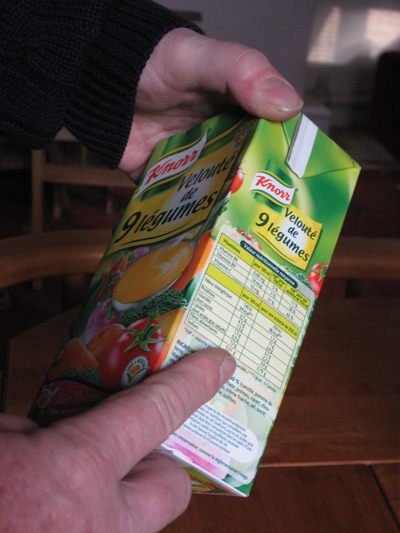PARIS — If you happen to be an electronics company fairly satisfied that your products comply with the nightmarish variety of "green" regulations like ROHS, WEEE and REACH, wait a minute. There's a new layer of regulation on the horizon: carbon-footprint labeling.
 |
|
Bruno Berthon Managing Director, Accenture |
Pending regulations for such labels -- very much like nutrition labels posted on food products -- are already in the works in Europe, driven by the European Union, which has set 2012 as its implementation target date. The French government is also floating the idea of getting this done by 2011.
The implication to the electronics industry is that it's no longer enough to inform consumers how little power your company's electronics product consumes. You need to specify the quantity (in grams) of carbon-dioxide emissions associated with the manufacture, transport and recycling of your product.
Don't roll your eyes.
Regulators in Europe are planning to introduce carbon-footprint labeling for every product -- ranging from potato chips to shampoos.
Asked if electronics products will also be subject to this regulation, Bruno Berthon, managing director, responsible for sustainability services at Accenture, said, "It will be naturally a priority," considering the big carbon footprint electronics products produce.
 |
| Will carbon-footprint labels look like this? |
According to Gartner's report entitled "Green IT: A New Industry Shock Wave," computing and telecom equipment is responsible for 2 percent of all global carbon emissions. The number is rapidly rising as demand for information technology increases.
Driven by retailers
The idea for carbon-footprint labels is not new. Big retailers such as Tesco in the U.K., Carrefour in France, and Wal-Mart in the United States have embraced the idea.
In the U.K., for the last few years, retailers have been already working on a carbon-footprint labeling scheme in collaboration with the Carbon Trust, an environmental consultancy funded by the British Government.
Wal-Mart, the world's biggest retailer, is developing a new measure, called by some in the industry as "Wal-Mart Index." The system will rate environmental and social sustainability of products over the course of their "lives." Wal-Mart has already recruited academics, supply chain experts and environmental groups to help create and implement the electronic indexing system within the next five years.
Copyright © 2009 TechInsights, a Division of United Business Media LLC All rights reserved.